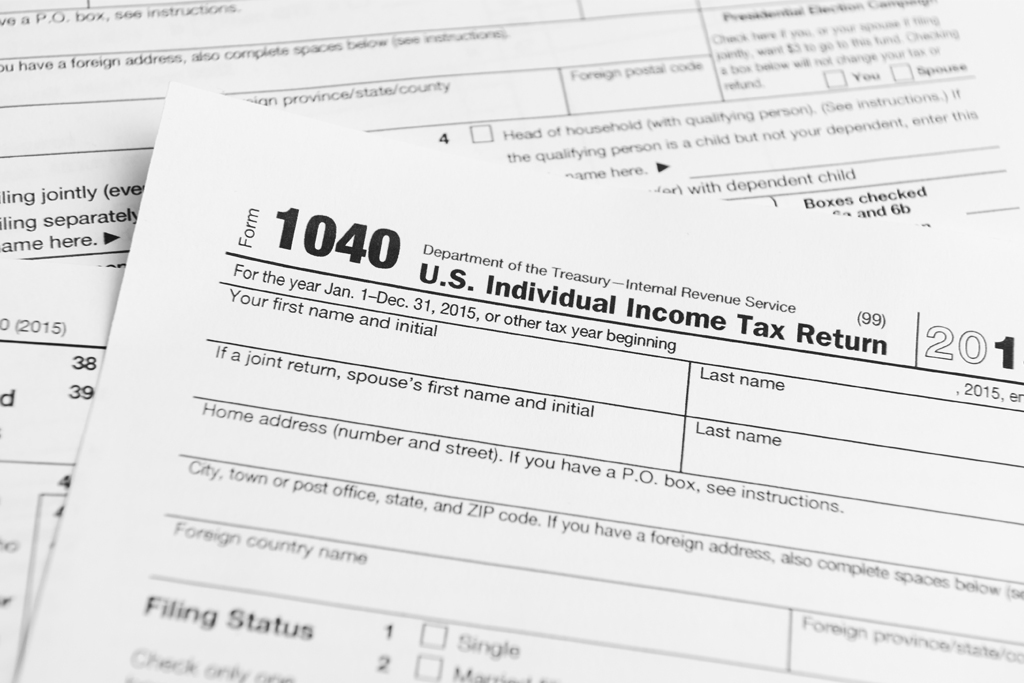Topic What is taxpayer identification number usa: A taxpayer identification number (TIN) in the USA is a valuable identifier assigned by the Internal Revenue Service (IRS) to individuals and entities for efficient tax administration. This unique nine-digit number allows taxpayers to fulfill their tax obligations effectively and ensures smooth communication with the IRS. Obtaining a TIN demonstrates your commitment to compliance and enables you to navigate the tax system seamlessly. With a TIN, you can confidently manage your tax affairs and contribute positively to the financial structure of the country.
Table of Content
- How do I obtain a taxpayer identification number in the USA?
- What is a Taxpayer Identification Number (TIN) and why is it necessary in the USA?
- How does the Internal Revenue Service (IRS) utilize the Taxpayer Identification Number (TIN) for tax administration?
- YOUTUBE: Individual Taxpayer Identification Number ITIN
- Is a Tax Identification Number (TIN) the same as a Social Security Number (SSN) in the USA?
- Are there different types of Taxpayer Identification Numbers (TINs) issued by the IRS?
- How can individuals obtain an Individual Taxpayer Identification Number (ITIN) in the USA?
- What is the purpose of an Individual Taxpayer Identification Number (ITIN) and who is eligible for one?
- Are there any differences in the application process or requirements for obtaining a Taxpayer Identification Number (TIN) for non-residents or foreigners?
- Can a Taxpayer Identification Number (TIN) be used for purposes other than taxation in the USA?
- Are there any privacy or security concerns associated with sharing a Taxpayer Identification Number (TIN) in the USA?
How do I obtain a taxpayer identification number in the USA?
To obtain a taxpayer identification number in the USA, you need to follow these steps:
1. Determine your eligibility: There are different types of taxpayer identification numbers depending on your status. The most common ones are Social Security Numbers (SSN), Individual Taxpayer Identification Numbers (ITIN), and Employer Identification Numbers (EIN).
2. Determine which taxpayer identification number you need:
- If you are a U.S. citizen or a permanent resident, you will typically need a Social Security Number (SSN). You can apply for an SSN by filling out Form SS-5 and submitting it to the Social Security Administration (SSA) along with the required documents, such as proof of identity and immigration status.
- If you are not eligible for an SSN but need to fulfill tax obligations, you may need an Individual Taxpayer Identification Number (ITIN). This applies to non-resident aliens, dependents or spouses of U.S. citizens, and other individuals who are not eligible for an SSN. To obtain an ITIN, you can submit Form W-7 to the IRS along with the required documents, such as proof of foreign status and supporting identification.
- If you are a business, you will need an Employer Identification Number (EIN). You can obtain an EIN by applying online through the IRS website, by mail, fax, or by phone.
3. Gather the necessary documents: Depending on the type of taxpayer identification number you are applying for, you will need to gather specific documents. For example, for an SSN, you may need to provide your birth certificate, passport, or immigration documents. For an ITIN, you might need to provide documents proving foreign status and identity. For an EIN, you will need to provide information about your business, such as its legal structure and ownership details.
4. Complete the application form: Once you have determined the type of taxpayer identification number you need and gathered the necessary documents, you should complete the appropriate application form. The forms are available on the websites of the Social Security Administration and the IRS.
5. Submit your application: Send your completed application form, along with the required documents, to the appropriate authority. For an SSN, you would send it to the Social Security Administration. For an ITIN, you would send it to the IRS. For an EIN, you can apply online through the IRS website or submit the form by mail, fax, or phone.
6. Follow up and wait for your taxpayer identification number: After submitting your application, it may take some time for your taxpayer identification number to be processed. You can follow up with the respective authority to check on the status of your application if needed.
Remember, it is important to provide accurate information and documentation when applying for a taxpayer identification number. If you have any doubts or questions, it is advisable to consult with professionals or contact the appropriate authorities for guidance.
READ MORE:
What is a Taxpayer Identification Number (TIN) and why is it necessary in the USA?
A Taxpayer Identification Number (TIN) is a unique identification number used by the Internal Revenue Service (IRS) in the United States to track individuals and entities for tax purposes. It is necessary because it helps the IRS to identify taxpayers and track their tax obligations.
Here is a step-by-step explanation of what a TIN is and why it is necessary:
1. Definition: A Taxpayer Identification Number (TIN) is a nine-digit number assigned by the IRS to individuals or entities for tax administration purposes. There are several types of TINs, including Social Security Numbers (SSNs) for individuals and Employer Identification Numbers (EINs) for businesses.
2. Individual TIN: For individuals, the most common TIN is the Social Security Number (SSN). This number is issued by the Social Security Administration (SSA) to U.S. citizens, permanent residents, and certain temporary residents. An SSN is used for various purposes, including tax reporting and employment verification.
3. Business TIN: For businesses, the primary TIN is the Employer Identification Number (EIN). This number is assigned by the IRS to entities such as corporations, partnerships, and sole proprietors. An EIN is used to identify businesses for taxation purposes, including filing tax returns and reporting employment taxes.
4. Non-resident TIN: Non-U.S. residents who are required to pay taxes in the U.S. but are not eligible for an SSN may need to obtain an Individual Taxpayer Identification Number (ITIN). This number is issued by the IRS and is used exclusively for tax purposes.
5. Why it is necessary: The TIN system is necessary for a few reasons:
a) Tax Administration: TINs help the IRS efficiently administer and enforce tax laws. They allow the IRS to track taxpayers\' income, deductions, credits, and tax payments, ensuring accurate reporting and compliance.
b) Income Reporting: TINs are used by employers, financial institutions, and other payers to report income and financial transactions. By using TINs, the IRS can match the reported income to taxpayers\' tax returns, reducing the likelihood of underreporting or evasion.
c) Identification: TINs help the IRS distinguish between different taxpayers with similar names, ensuring that the correct tax liabilities and refunds are assigned to the right individuals or entities.
d) Compliance and Enforcement: TINs enable the IRS to monitor tax compliance and detect fraudulent activities. They help identify individuals or businesses that should file tax returns but fail to do so, allowing the IRS to take appropriate enforcement actions.
Overall, a Taxpayer Identification Number (TIN) is essential in the USA as it facilitates proper tax administration, promotes compliance, and helps the IRS effectively enforce tax laws.
How does the Internal Revenue Service (IRS) utilize the Taxpayer Identification Number (TIN) for tax administration?
The Internal Revenue Service (IRS) utilizes the Taxpayer Identification Number (TIN) for tax administration in several ways:
1. Identification of Taxpayers: The TIN is a unique nine-digit number that identifies individual taxpayers, businesses, and other entities. It allows the IRS to track and differentiate taxpayers for the purpose of tax administration.
2. Filing Tax Returns: When individuals or businesses file their tax returns, they are required to provide their TIN on the return forms. The IRS uses this information to match the tax returns with the corresponding taxpayer records in their system.
3. Verification of Income: Employers and financial institutions are required to report income earned by individuals to the IRS. The TIN is used to match these reports with the taxpayers\' records. It helps the IRS ensure that taxpayers accurately report their income and pay the correct amount of taxes owed.
4. Taxpayer Account Management: The TIN is used by the IRS to manage taxpayer accounts. It allows the IRS to keep track of a taxpayer\'s filing and payment history, correspondence, and any other relevant information for tax administration purposes.
5. Issuance of Refunds: When taxpayers are due a refund, the IRS uses the TIN to process and issue the refund. The TIN helps ensure that the refund is sent to the correct taxpayer and prevents fraud or identity theft.
6. Identification of Nonresident Aliens: For individuals who are not eligible for a Social Security Number (SSN), the IRS issues an Individual Taxpayer Identification Number (ITIN). This number serves as their TIN for tax administration purposes, allowing nonresident aliens to comply with U.S. tax laws.
Overall, the TIN is a critical component of the IRS\'s tax administration system. It helps them accurately identify and track taxpayers, verify income, manage taxpayer accounts, issue refunds, and ensure compliance with tax laws.

Individual Taxpayer Identification Number ITIN
ITIN: Looking to easily navigate the ITIN application process? This informative video will guide you step-by-step, helping you understand the importance and benefits of obtaining an ITIN. From documentation requirements to filing tips, gain the knowledge you need to successfully secure your Individual Taxpayer Identification Number.
How to Get an Individual Taxpayer Identification Number
Get: Explore the fastest and most effective ways to get your hands on that much-needed document! This must-watch video will reveal expert strategies on how to obtain your desired records efficiently and effortlessly. Don\'t waste any more time; hit play now to learn the secrets to getting what you need in record time!
Is a Tax Identification Number (TIN) the same as a Social Security Number (SSN) in the USA?
A Tax Identification Number (TIN) is not the same as a Social Security Number (SSN) in the USA. While both numbers are used for identification purposes, they serve different purposes and are issued by different government agencies. Here is a step-by-step explanation:
1. TIN: A Tax Identification Number (TIN) is a generic term used to refer to various types of identification numbers used for tax purposes in the United States. The most common types of TINs are:
- Employer Identification Number (EIN): This is used by businesses and other entities for tax reporting purposes. It is issued by the Internal Revenue Service (IRS) and consists of a nine-digit number.
- Individual Taxpayer Identification Number (ITIN): This is issued by the IRS to individuals who are required to have a U.S. taxpayer identification number but are not eligible for a Social Security Number. This includes non-resident aliens, foreign investors, and dependents or spouses of U.S. citizens or resident aliens. It also consists of a nine-digit number starting with the number 9.
2. SSN: A Social Security Number (SSN) is a unique nine-digit number issued by the Social Security Administration (SSA). It is primarily used to track individuals\' earnings and determine their eligibility for Social Security benefits. It is also used for other purposes, such as for employment and tax reporting.
3. Differences:
- Issuing Authority: TINs, such as EINs and ITINs, are issued by the IRS, while SSNs are issued by the SSA.
- Eligibility: SSNs are generally issued to U.S. citizens, permanent residents, and certain non-immigrants authorized to work in the U.S. ITINs, on the other hand, are specifically for individuals who are not eligible for an SSN but need a taxpayer identification number for tax purposes.
4. Usage: Both TINs and SSNs are used for tax purposes, but TINs have a broader scope. TINs are used by businesses, non-profit organizations, and individuals who don\'t qualify for an SSN. SSNs, on the other hand, are primarily used for Social Security benefits, employment, and tax reporting.
In summary, while both TINs and SSNs are identification numbers used for tax purposes, they are different in terms of issuing authority, eligibility requirements, and usage. TINs encompass various types of identification numbers, including EINs and ITINs, while SSNs are specifically issued by the Social Security Administration.
Are there different types of Taxpayer Identification Numbers (TINs) issued by the IRS?
Yes, there are different types of Taxpayer Identification Numbers (TINs) issued by the IRS. The most common types of TINs include:
1. Social Security Number (SSN): This is the most familiar type of TIN and is issued to U.S. citizens, permanent residents, and temporary residents authorized to work in the United States. It is a nine-digit number assigned to individuals by the Social Security Administration (SSA). This number is used for various purposes, including tax reporting and identification.
2. Employer Identification Number (EIN): An EIN is a nine-digit number issued to businesses and other entities by the IRS. This number is used to identify a business for tax purposes. It is typically required for businesses with employees or for those who are required to file certain types of tax returns, such as corporate returns or employment tax returns.
3. Individual Taxpayer Identification Number (ITIN): An ITIN is a nine-digit number issued by the IRS to individuals who are required to have a U.S. taxpayer identification number but are not eligible for a Social Security Number. This includes non-resident foreign nationals, spouses and dependents of U.S. citizens or residents, and certain other individuals who have U.S. tax filing obligations. ITINs are used for tax purposes only and do not provide work authorization.
4. Preparer Tax Identification Number (PTIN): A PTIN is a unique identifier issued by the IRS to tax return preparers for use on tax returns and related documents. This number is required for anyone who prepares or assists in preparing federal tax returns for compensation.
It\'s important to note that these TINs serve different purposes and are issued to different individuals or entities based on their specific tax filing obligations. It is essential to use the correct TIN when filing tax returns or engaging in other tax-related activities to ensure accurate identification and reporting.
_HOOK_
How can individuals obtain an Individual Taxpayer Identification Number (ITIN) in the USA?
To obtain an Individual Taxpayer Identification Number (ITIN) in the USA, individuals can follow these steps:
1. Determine eligibility: ITINs are issued to individuals who are required to have a U.S. taxpayer identification number but are not eligible for a Social Security Number (SSN). Ensure that you meet the eligibility requirements.
2. Complete the Form W-7: Fill out Form W-7, Application for IRS Individual Taxpayer Identification Number. This form is available on the IRS website and can be downloaded and printed.
3. Gather necessary documents: Along with Form W-7, you will need to submit documents that establish your identity and foreign status. This may include a valid passport, national identification card, or birth certificate, depending on your situation. Ensure you have the necessary documents before proceeding.
4. Submit the application: Once you have filled out Form W-7 and gathered the required documents, you can submit your application. You have a few options to do this:
- Mail: You can mail your completed application and documents to the address mentioned in the Form W-7 instructions.
- In-person: Some IRS Taxpayer Assistance Centers offer in-person assistance with ITIN applications. Check the IRS website for a center near you and schedule an appointment.
- IRS-authorized Acceptance Agents: These are individuals or organizations authorized by the IRS to assist with the ITIN application process. They can help you complete the form and certify your documents before submitting them.
5. Wait for processing: It may take several weeks for the IRS to process your ITIN application. You can check the status of your application on the IRS website using the online ITIN application tool.
6. Receive your ITIN: If your application is approved, you will receive a letter from the IRS containing your assigned ITIN. Keep this letter safe as it is your official proof of having an ITIN.
Remember, the ITIN is specific to tax purposes and does not confer any other legal status in the United States.
What is the purpose of an Individual Taxpayer Identification Number (ITIN) and who is eligible for one?
The purpose of an Individual Taxpayer Identification Number (ITIN) is to provide individuals who don\'t have a Social Security Number (SSN) with a unique identification number for tax purposes. It is issued by the Internal Revenue Service (IRS) in the United States.
Here are the steps to obtain an ITIN:
1. Determine your eligibility: An individual is eligible for an ITIN if they are required to file a federal tax return but are not eligible to obtain a Social Security Number. This includes non-resident aliens, resident aliens, and their dependents.
2. Complete the required application: To obtain an ITIN, you need to complete and submit Form W-7, Application for IRS Individual Taxpayer Identification Number. This form can be downloaded from the IRS website or obtained by calling the IRS toll-free number.
3. Gather the necessary documentation: Along with the completed Form W-7, you will need to provide original or certified copies of supporting documents that establish your identity and foreign status. These documents may include passports, birth certificates, or immigration documents, depending on your situation.
4. Submit the application: Once you have completed the Form W-7 and gathered the necessary documents, you can submit the application by mail or in person at an IRS Taxpayer Assistance Center.
5. Wait for processing: It may take several weeks for the IRS to process your ITIN application. If your application is approved, you will receive a letter from the IRS with your assigned ITIN.
6. Use your ITIN for tax purposes: Once you have your ITIN, you can use it to file your federal tax returns and fulfill other tax obligations.
It\'s important to note that an ITIN is only used for tax purposes and does not grant you any legal status or work authorization in the United States. Its sole purpose is to ensure that individuals without a Social Security Number can fulfill their tax obligations.
Are there any differences in the application process or requirements for obtaining a Taxpayer Identification Number (TIN) for non-residents or foreigners?
Yes, there are differences in the application process and requirements for obtaining a Taxpayer Identification Number (TIN) for non-residents or foreigners in the USA. Here is a step-by-step guide to obtaining a TIN for non-residents or foreigners:
1. Determine the type of TIN required: Non-residents or foreigners may need to apply for either an Individual Taxpayer Identification Number (ITIN) or an Employer Identification Number (EIN), depending on their specific circumstances.
2. ITIN Application Process: If you are a non-resident or foreign individual who is not eligible for a Social Security Number (SSN), you will need to apply for an ITIN. The ITIN application process involves the following steps:
a. Complete Form W-7: Obtain Form W-7, Application for IRS Individual Taxpayer Identification Number, either online from the IRS website or by requesting a physical copy from the IRS. Fill out the form according to the instructions provided.
b. Gather Required Documentation: Along with the completed Form W-7, you will need to provide supporting documentation to prove your identity and foreign status. This may include your passport, visa, birth certificate, and other documents as specified in the instructions for Form W-7.
c. Submit Application: Once you have completed Form W-7 and gathered the necessary supporting documents, you can submit your application to the IRS by mail or through an authorized acceptance agent.
3. EIN Application Process: If you are a foreign business entity or a non-resident who needs an identification number for business purposes, such as opening a US bank account or forming a business entity in the US, you will need to apply for an EIN. The EIN application process involves the following steps:
a. Complete Form SS-4: Obtain Form SS-4, Application for Employer Identification Number, either online from the IRS website or by requesting a physical copy from the IRS. Fill out the form according to the instructions provided.
b. Gather Required Documentation: Along with the completed Form SS-4, you will need to provide supporting documentation to establish the need for an EIN. This may include certificates of incorporation, partnership agreements, or other relevant documents as specified in the instructions for Form SS-4.
c. Submit Application: Once you have completed Form SS-4 and gathered the necessary supporting documents, you can submit your application to the IRS. You can do this online, by mail, or by fax, depending on your preference.
It\'s important to note that the application process and requirements may vary depending on your specific circumstances. It is advisable to visit the official IRS website or consult with a tax professional to ensure you have the most up-to-date and accurate information for your situation.
How To Get Your Tax ID Number and EIN Number
Tax ID Number and EIN Number: Are you confused about the difference between a Tax ID Number and an EIN Number? Fret no more! This eye-opening video is here to break it all down for you. Discover how to apply for both, understand their unique purposes, and explore the advantages they provide for individuals and businesses alike. Don\'t miss out on this enlightening educational opportunity!
Can a Taxpayer Identification Number (TIN) be used for purposes other than taxation in the USA?
Yes, a Taxpayer Identification Number (TIN) can be used for purposes other than taxation in the USA. While its primary purpose is to facilitate the administration of taxes by the Internal Revenue Service (IRS), TINs can also serve other functions, such as identifying individuals and entities for various financial and non-financial transactions.
Here are some examples of how a TIN can be used for purposes other than taxation:
1. Opening a Bank Account: When opening a bank account, financial institutions typically require a TIN as part of the Know Your Customer (KYC) process. This is done to identify the account holder and fulfill reporting requirements.
2. Applying for Credit: When applying for credit, such as a loan, credit card, or mortgage, a TIN may be requested by the lender as a means of verifying the applicant\'s identity and assessing their creditworthiness.
3. Employment Verification: Employers use TINs to report income and withhold taxes on behalf of their employees. Additionally, TINs are used for employment verification purposes, ensuring that individuals are authorized to work in the United States.
4. Government Benefit Programs: TINs can be required for eligibility and identification purposes when accessing government benefit programs, such as Medicare or Social Security.
5. Business Transactions: TINs are used by businesses for various purposes, such as opening vendor accounts, filing tax returns, or conducting financial transactions.
It\'s important to note that the specific uses of a TIN may vary depending on the context and institution requesting the number. However, TINs generally serve as a unique identifier for individuals and entities, making them valuable for a wide range of purposes beyond taxation in the USA.
READ MORE:
Are there any privacy or security concerns associated with sharing a Taxpayer Identification Number (TIN) in the USA?
Yes, there are privacy and security concerns associated with sharing a Taxpayer Identification Number (TIN) in the USA. Here are some potential concerns:
1. Identity theft: The TIN, also known as the Social Security Number (SSN) for individuals or Employer Identification Number (EIN) for businesses, is a unique identifier that can be used by criminals to impersonate you or your organization. If someone gains access to your TIN, they may be able to open fraudulent accounts or commit other forms of identity theft.
2. Financial fraud: Sharing your TIN increases the risk of financial fraud. Criminals may use your TIN to file false tax returns, claim fraudulent refunds, or engage in other illegal activities related to taxes and finances. This can result in financial loss and potential legal implications for the victim.
3. Phishing and scams: Sharing your TIN can make you a target for phishing attempts and scams. Scammers may contact you posing as legitimate organizations, such as the IRS, and request your TIN for various reasons. They might claim it is necessary for verification or to resolve an issue. However, providing your TIN to these fraudulent parties can lead to identity theft or financial harm.
To protect your privacy and security when it comes to sharing your TIN:
1. Be cautious when disclosing your TIN: Only provide your TIN when absolutely necessary and to trusted entities. Verify the legitimacy of the party asking for your TIN before sharing it.
2. Beware of phishing attempts: Be vigilant against phishing attempts where scammers try to obtain your TIN through fraudulent emails, phone calls, or websites. Never share your TIN in response to unsolicited requests.
3. Securely store your TIN: Keep your TIN information stored securely, both physically and digitally. Use strong passwords, encrypt sensitive files, and ensure that physical documents containing your TIN are kept in a safe place.
4. Monitor your financial information: Regularly review your financial statements, credit reports, and tax records for any suspicious activity. Report any unauthorized use of your TIN immediately to the appropriate authorities.
In summary, while it may be necessary to share your TIN in certain situations, it is crucial to remain cautious and protect your privacy and security to minimize the risk of identity theft and financial fraud.
_HOOK_












